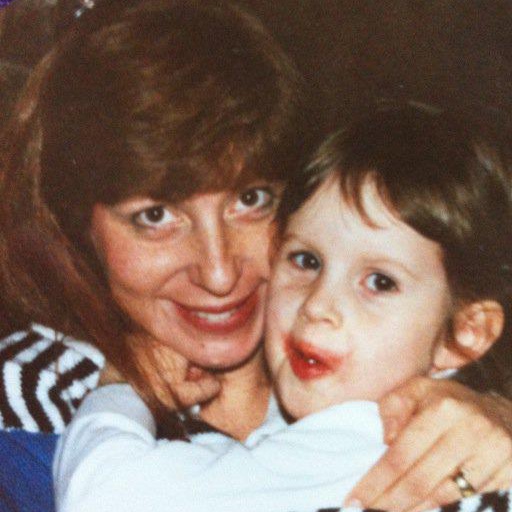‘Tis the season to celebrate and ’tis the season to give. We live in a culture that cares about generous living, and for that I am grateful—this week we will observe #givingtuesday and many of my friends have created traditions of service and donating when thinking for their December family activities.
But why do we give? What motivates the generous heart? AND—Does the generous heart simply involve our wallets and bank accounts? Is there more than giving monetarily when it comes to generous living?
My heart has been stirring over the above questions. It is simple to say: we give because it is nice, giving is better than recieving, or we give because it is the right thing to do.
Those answers are much too simple for me—and empty, there has to be more to the generous heart. Doing the right thing year after year seems to to become mundane and quite tiresome.
As I have been studying generous living with my small group I have had to think about unraveling these simpler answers to generous living and find a deeper motivation for what spurs one on to live generously and be a joyful and abundant giver.
A Generous Heart Gives because of Grace
Before I had ever read the Bible, I was a very philanthropic person. However, my own heart was motivated to be philanthropic because I wanted to perform well or “do” the right thing—and I wanted others to see me doing the right thing. I was the chair of a few philanthropic committees and my heart’s belief was that I could impress others and God by being generous with my time and money. I believed I could earn my way to heaven through my generosity and earn the approval of others through moralism.
What I have learned in the last decade or so is that there is no amount of generosity that can earn God’s favor. God’s favor is given to us by grace and through faith so that no (wo)man can boast (Ephesians 2:8-9). God freely gives us favor in his Son Jesus, and the Bible teaches the truth—so that no man can boast—because our human hearts are so prone to perform and boast. The also Bible teaches us that “our righteous deeds done in our own efforts are like filthy rags” (Isaiah 64:4).
In performance-based generosity, the act of giving is primary. Which is not at all bad. Giving is very good—but very good things can become ultimate things and ultimate things are like filthy rags— not all giving is done for the glory of God’s Kingdom.
A performance-based generous heart is like a filthy rag—a grace-based generous heart is the opposite. A grace-based generous heart has God as primary. Grace-based generosity gives because the grace-based giver knows how much they have been given. Grace-based generosity is motivated because God first loved so the grace-based giver loves in return by living generously.
The grace-based giver also knows this life and the things of this world are temporary and possessions acquired on earth will not last for ever—only God’s Kingdom will last forever.
A Generous Heart Recognizes Everything Comes From God
Trust in the LORD and do good; dwell in the land and enjoy safe pasture. Take delight in the LORD, and he will give you the desires of your heart (Psalm 37:3-4).
This is the hardest part. Everything we have comes from God. Our money, our food, our houses, our backgrounds, our gifts, our temperaments, our looks, our spouses, our children . . . even our time.
For me, recognizing my finances come from God so therefore I should be generous with my money is only one layer in learning how to live with a generous heart—the rest feels like an unraveling of everything I thought I knew—I have to retrain myself to see that I am not the author of my story, God is the author of my story and He has given me all that I have.
It is when I start thinking about my story, my time, my gifts, my looks, my finances, and my temperament that I begin to feel a little gnarly.
This is a struggle with contentment and unfortunately tangled up in performance-based living. At times I am not content with the way I am or how I measure up to everyone else. This makes it difficult to be generous with myself and generous with others as an extension of this gnarly, tangled-up place.
If I fail to be content with my time, my gifts, and my circumstances, I fail to love others well.
The generous heart is not only connected to finances, the generous heart is connected to being generous with time, and the way you serve others, as well as being content with the gifts, looks, family, and temperament God has given to you. This is where we see the gnarly rub between giving and discontentment. We give as a culture, but as a culture we are radically discontent.
We struggle to be satisfied with our wardrobes, our television sizes, the camera on our smart phone, and our waistlines.
We worry if we give two hours to listen to a friend that is struggling, we may miss that downtime we had hoped to have to scroll through social media.
When we do scroll through social media, we see our friends and their perfect fall family photos—and envy and comparison creep into our hearts.
The Generous Heart Trusts in God’s Provision
Some time later the brook dried up because there had been no rain in the land. Then the word of the Lord came to him: “Go at once to Zarephath in the region of Sidon and stay there. I have directed a widow there to supply you with food.” So he went to Zarephath. When he came to the town gate, a widow was there gathering sticks. He called to her and asked, “Would you bring me a little water in a jar so I may have a drink?” As she was going to get it, he called, “And bring me, please, a piece of bread.”
“As surely as the Lord your God lives,” she replied, “I don’t have any bread—only a handful of flour in a jar and a little olive oil in a jug. I am gathering a few sticks to take home and make a meal for myself and my son, that we may eat it—and die.”
Elijah said to her, “Don’t be afraid. Go home and do as you have said. But first make a small loaf of bread for me from what you have and bring it to me, and then make something for yourself and your son. For this is what the Lord, the God of Israel, says: ‘The jar of flour will not be used up and the jug of oil will not run dry until the day the Lord sends rain on the land.’”
She went away and did as Elijah had told her. So there was food every day for Elijah and for the woman and her family. For the jar of flour was not used up and the jug of oil did not run dry, in keeping with the word of the Lord spoken by Elijah (1 Kings 17:7-16).
This woman had to give all that she had in order to see that God would provide more. She had to trust in His provision and that trust required action.
If we believe God is the giver of all things, we will trust that God will provide for us, but this kind of faith requires action. We have to step outside of our comfort zone and see that God will provide for us. This includes taking risks with our finances, our time, or stepping out in faith to use the rusty and rough edged speaking, teaching, or leadership gifts God has given us. This kind of generous living trusts that God will provide by shining through the broken places.
And I know there are many more layers to the generous heart. It is a slow unraveling process of learning little by little to live by grace and the unseen, instead of rotely doing things the way we have always done them.
The generous heart overflows with the love we have been given by grace and through faith alone, it is more than clicking a donate button, it is a call to live generously in many facets of life so that Christ’s power can be perfectly displayed.
But he said to me, “My grace is sufficient for you, for my power is made perfect in weakness.” Therefore I will boast all the more gladly about my weaknesses, so that Christ’s power may rest on me. That is why, for Christ’s sake, I delight in weaknesses, in insults, in hardships, in persecutions, in difficulties. For when I am weak, then I am strong (2 Corinthians 12:9-10).








